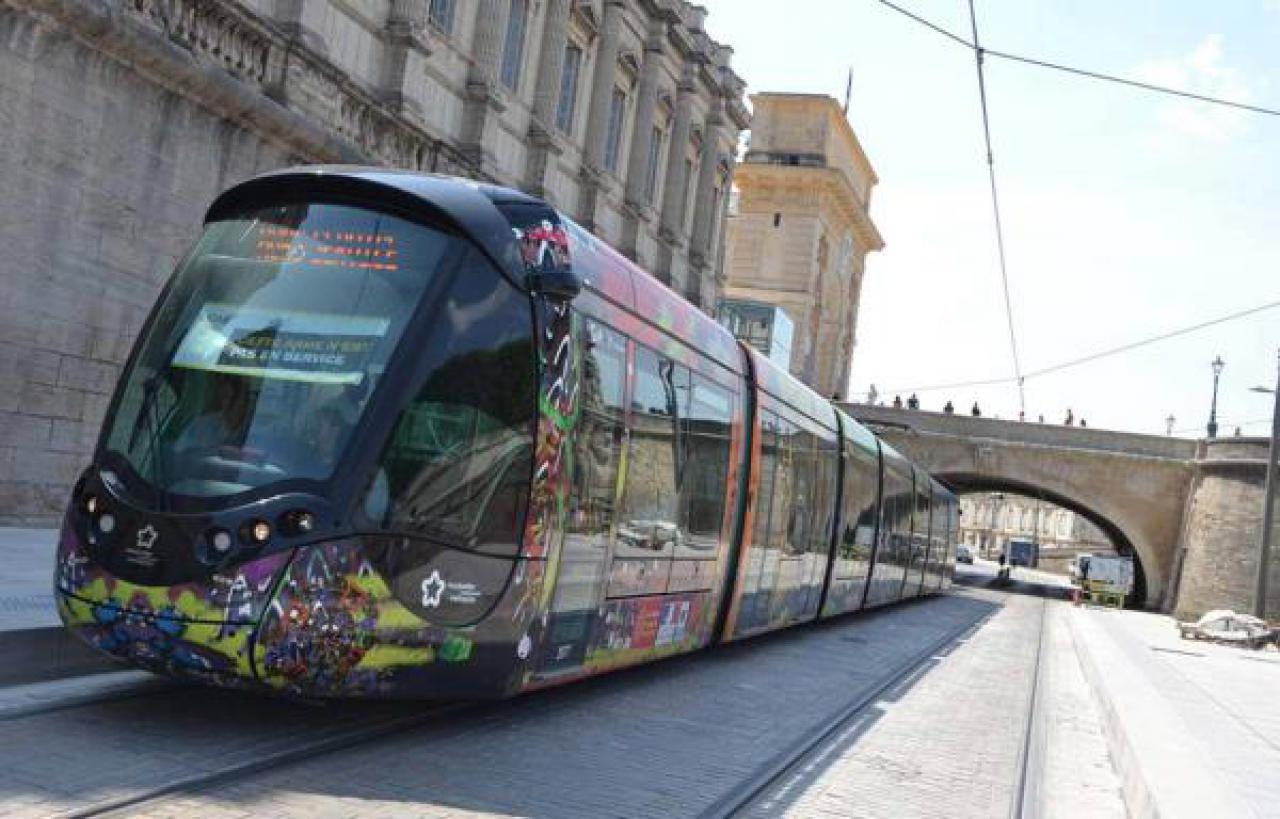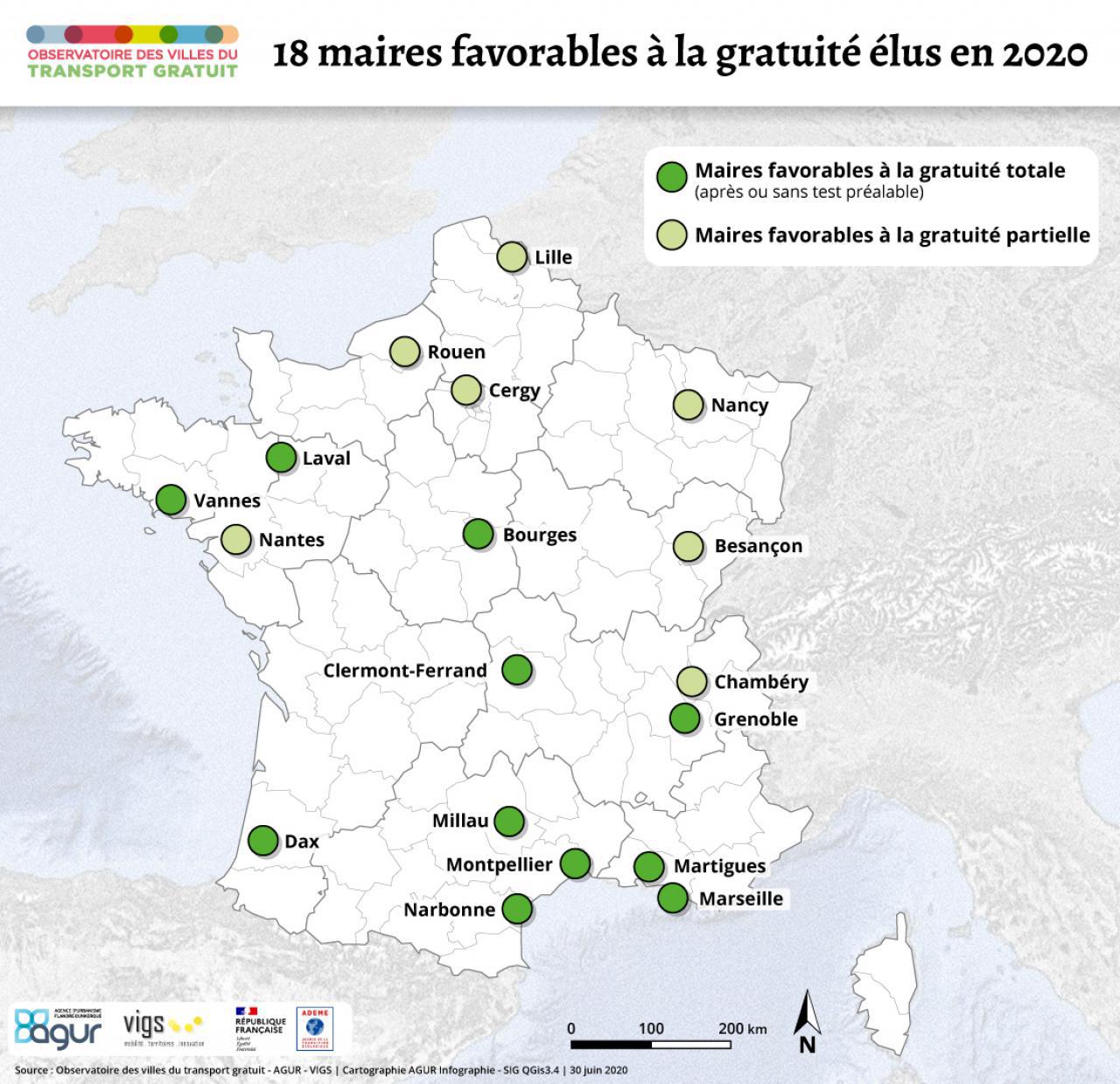2020 Municipals: election of 18 mayors in favor of free transport
These municipal elections will most definitely be viewed as being marked by the unexpected. After a first round disrupted by COVID-19, the late second round saw the election of several women politicians at the head of large cities, unexpected environmentalist candidates and also, and this is obviously what interests us most here, mayors in favor of fare-free public transport.
Montpellier, at the forefront
Montpellier warrants being mentioned first. This metropolis will undoubtedly be the first in France to implement entirely fare-free public transport for its residents. This was a campaign promise of Mickaël Delafosse, elected under the banner "list of union of the left", who shows a high level of voluntarism on the subject.
Bourges, Millau, Laval, and Narbonne
Behind this forerunner, there are Bourges, where the various left Yann Galut was elected by a wide margin in the 2nd round; Millau, which elected Emmanuelle Gazel (union list of the left); Laval, where Florian Bercault (LDVG) will experiment with entirely free of charge; and Narbonne, where the various right Didier Mouly defended the idea of entirely free of charge during his campaign.
Dax, Martigues, and Vannes
As already announced in a previous article published on this site, candidates in favor of entirely free of charge have been elected in the first round in Dax (the centrist Julien Dubois), Martigues (the communist Gaby Charroux), and Vannes (the various right David Robo).
Elsewhere, other candidates were also elected who are in favor of forms of partially free of charge, as tests and therefore likely to evolve over time.
Clermont-Ferrand, Grenoble, and Marseille
In Clermont-Ferrand, Olivier Bianchi (elected under the LUG banner) counts among his supporters fervent proponents of free access. The new mayor has thus undertaken to first test of free transport only on weekends and then every day.
In Grenoble, Eric Piolle (LDVG) has announced that he will introduce free access on weekends and all year round for the most vulnerable, which will then tend towards entirely free of charge.
In Marseille, subject to the results of the 3rd round, Michèle Rubirola (LDVG) chose partially free access at first, only for young people and people receiving basic social security benefits, but he is in favor of entirely free access at a later time.
Besançon, Cergy, Lille, Nancy, Nantes, and Rouen
In Besançon, Mayor Anne Vignot (LUG) advocates free public transport reserved for people under 26 years of age and people receiving basic social security benefits.
In Cergy, Jean-Paul Jeandon (LDVG) will introduce free-of-charge access for young people and seniors.
In Lille, Martine Aubry (LUG) surprised everyone during the campaign by stating that she wished to see free transport introduced for children under 18, students, and those on modest incomes.
In Nancy, Mathieu Klein (LDVG) will introduce free-of-charge weekends. Johanna Rolland (LUG) will do the same in Nantes.
In Rouen, Nicolas Mayer-Rossignol (LUG) proposes to experiment with partially free of charge on Saturdays, then the whole weekend if the results are conclusive.
In Chambéry, Thierry Repentin (LDVG) mentioned in his campaign program between two rounds his desire to set up free buses for those with the most modest incomes, young and old, as well as Saturdays (to facilitate access to shops) and to study the financial feasibility of an entirely free-of-charge system.
The transition to free-of-charge transport in these 18 cities will allow more than 2.6 million residents to soon discover fare-free public transport.
Free-of-charge access boosted by the health crisis?
This review of 18 cities is based solely on the results of the municipal elections. It does not take into account the developments related to the recent health crisis, which could increase the appeal of free access in the eyes of mayors and presidents of intercommunalities.
However, according to Maxime Huré, president of the scientific committee of the Observatory of Cities with Free Transport, "in a context where the networks are facing a significant drop in users, free transport could allow public transport to become attractive again".
In some small and medium-sized towns, networks are currently receiving almost no revenue from the sale of tickets. This has led researchers to come up with the hypothesis of mayors being forced to view their pricing policies differently. "Free transport could improve the economic efficiency of the transport network by allowing a higher bus occupancy rate." This is clearly something to look into at some stage.

